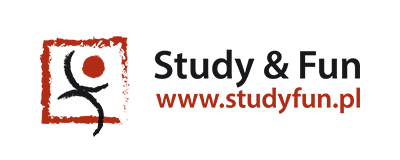- Programmes and schedules
- Student affairs
- Educational offer
- Bachelor studies
- Master studies
- Doctoral studies
- Postgraduate and MBA studies
- English language studies
- Tutoring at the Faculty of Economics
- ACCA
- MOST
- Courses
- Wymiana zagraniczna studentów
- Coaching
- Quality of education
- News
Coaching
Coaching and professional counselling at the Faculty of Economics at the University of Gdańsk
Today’s socio-economic reality – in particular, a fast-changing situation in the labour market and employers’ increasingly demanding requirements – can make anyone feel lost and insecure. This is true not only of graduates who face entry into full-time work, but also of experienced employees, many of whom tend to feel burned out and demotivated. On the one hand, the fact that employers expect a lot from applicants and that the job market is fiercely competitive can lead some students to ask such fundamental questions as “was my choice of courses and majors right?”, “what about my employability?”, “how to have more control over my career?”, “what are my strong and weak points?”. On the other hand, work stress resulting from unrelenting pressure on better job performance and endless restructurings can cause any employee to ask equally significant questions: “why do I feel demotivated?”, “will I effectively cope with next challenges?”, “why do I feel increasingly frustrated?”, “what should I change so as to be satisfied again?” .
Answering the above-mentioned questions is instrumental in determining your career and in bolstering your self-confidence. However, a failure to do so might bring about frustration and self-doubt. This, in turn, could lead you to make wrong decisions (e.g., giving up a job or rejecting a seemingly unattractive job offer), which might negatively affect the realisation of your professional aspirations as well as your sense of fulfilment. That is why it is important that any employee is able to effectively cope with such challenges. And coaching and broadly understood professional counselling are thought to be of great help in addressing these problems. Face to face conversation with an experienced counsellor can help you guide your career and identify the source of your demotivation and dissatisfaction.
Given the significance and prevalence of such problems, we decided to make coaching and professional counselling available to all students and staff at the University of Gdańsk. Counselling is offered by Piotr Zientara, who is an associate professor at the Faculty of Economics. Professor Zientara holds an MA degree in Human Resource Development (HRD) from the College of Europe (Bruges, Belgium). Professor Zientara has also professional experience in human resource management (he used to work as a head of the recruitment department at a private-sector company). At the Faculty of Economics, he gives lectures on, among other subjects, human capital development. Moreover, he has authored or co-authored several scientific publications that focus on links between human resource management (HRM) and Corporate Social Responsibility (CSR) and sustainability. In particular, he has published in Human Resource Development International, Industrial Relations: A Journal of Economy and Society and Journal of Sustainable Tourism. Crucially, Professor Zientara is the author of a monograph entitled “Human Resource Management in Emerging Economies” (published by Routledge, Taylor & Francis Group).
We hope that this initiative will prove helpful and will be well received by all concerned.









